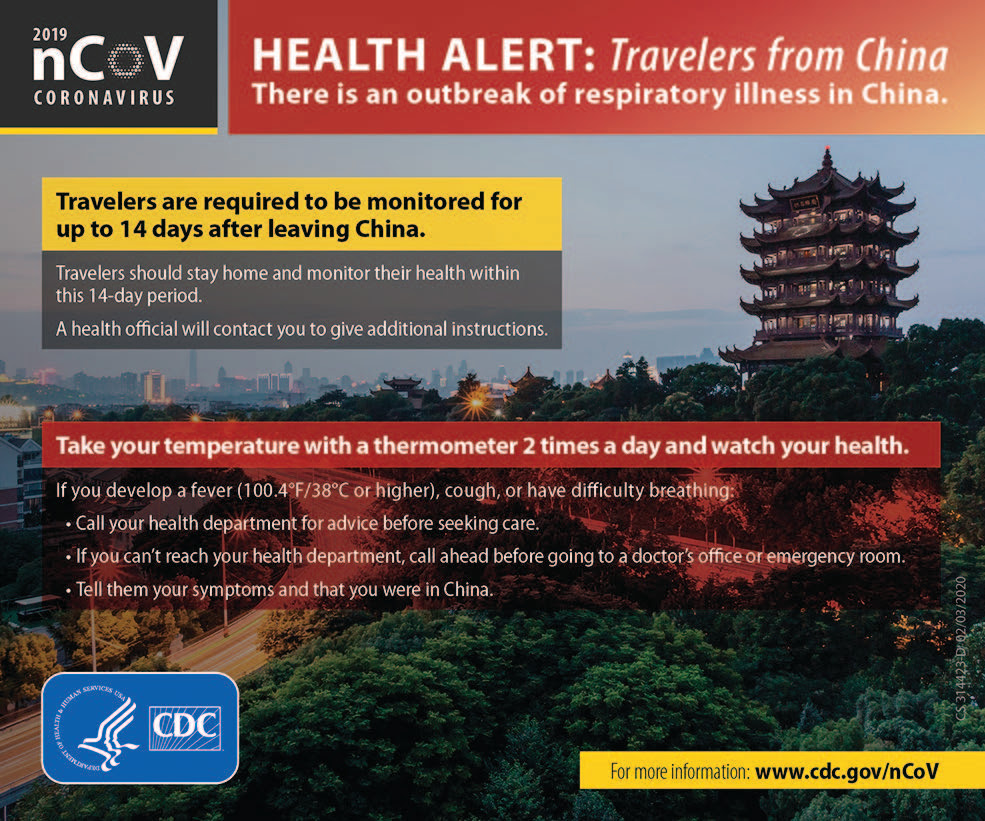2019-nCoV: What the Public Should Do
The current outbreak of 2019 novel coronavirus (2019-nCoV) originated in China but has now spread internationally, impacting an increasing number of countries. Sustained community spread is occurring in China. Limited person-to-person spread, most associated with close contact with a patient with confirmed 2019-nCoV has been seen outside of China. No community spread of 2019-nCoV has been identified in the United States at this time. In the coming days and weeks, we expect more confirmed cases in the United States, including some person-to-person spread. The goal of CDCs aggressive ongoing public health response is to prevent spread of 2019-nCoV in the United States.
What You Should Do
- Stay informed – CDC is updating its website daily with the latest information and advice for the public. (www.cdc/ncov)
- Remember to take everyday preventive actions that are always recommended to prevent the spread of respiratory viruses.
– Avoid close contact with sick people.
– While sick, limit contact with others as much as possible.
– Stay home if you are sick.
– Cover your nose and mouth when you cough or sneeze. Avoid touching your eyes, nose and mouth. Germs spread this way.
– Clean and disinfect surfaces and objects that may be contaminated with germs.
– Wash your hands often with soap and water for at least 20 seconds. If soap and water are not available, use an alcohol-based hand rub with at least 60% alcohol.
- If you feel sick with fever, cough, or difficulty breathing, and have traveled to China or were in close contact with someone with 2019-nCoV in the 14 days before you began to feel sick, seek medical care. Before you go to a doctor’s office or emergency room, call ahead and tell them about your recent travel and your symptoms.
What You Should Not Do
- Do not travel to China.
- Do not use facemasks. CDC does not recommend the use of facemasks for the general public to prevent the spread of 2019-nCoV.
- Do not show prejudice to people of Asian descent, because of fear of this new virus. Do not assume that someone of Asian descent is more likely to have 2019-nCoV.
www.cdcgov/nCoV



